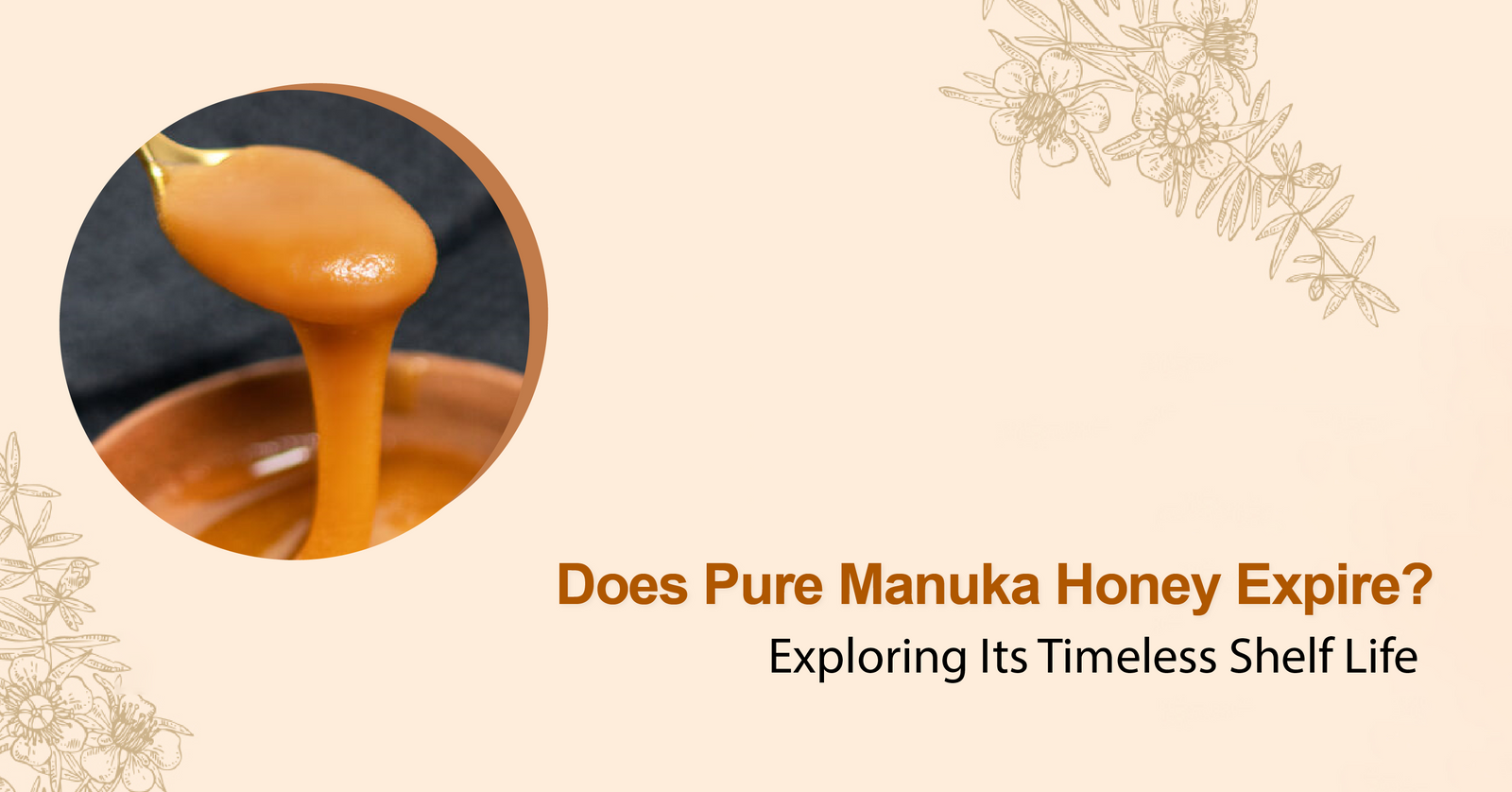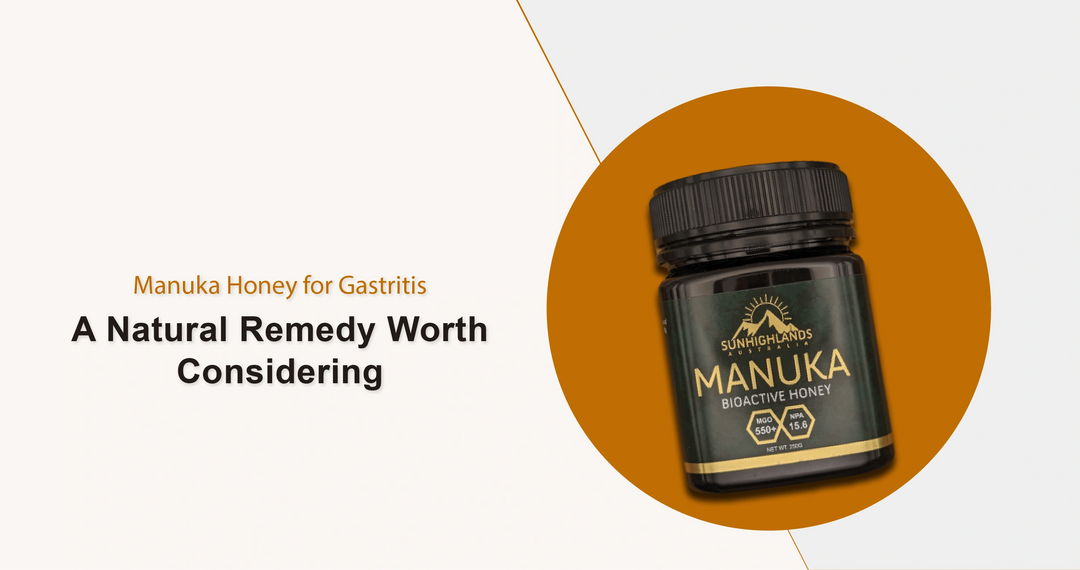Does Pure Manuka Honey Expire? Exploring Its Timeless Shelf Life

Can you believe the oldest honey in the world is 3000 years old? Archaeologists discovered a jar of honey from the tomb of a deceased pharaoh in 2015, which was placed there to keep him happy in the afterlife. Amazingly, the honey retained its natural flavour and colour.
In today's digital age, most products have an expiry or best-before date for the consumer's information. Manuka honey, on the other hand, is known for its extraordinary shelf life. Due to its unique composition, consisting of 80% sugar (mainly fructose and glucose) and 18% water.
it creates an osmotic environment that prevents the growth of bacteria by drawing water out of bacterial cells. Moreover, the acidic pH of Manuka honey also inhibits bacterial growth. Let's delve into the expiration of Manuka honey in this article.
Manuka Honey and Shelf Life
In general, honey usually has a best-before date rather than an expiry date, indicating its quality. Honey doesn't spoil or go bad, but its potency and quality can diminish over time, depending on factors such as the storage jar, storage area, packaging, and the initial quality of the honey.
The quality of Manuka honey is determined by the presence of methylglyoxal (MGO), a compound responsible for its antibacterial activity. Higher levels of MGO result in a better UMF (Unique Manuka Factor) grading, reflecting greater potency and antibacterial effects.
Storage Ideas for Manuka Honey
- Away from Moisture: Store Manuka honey in a clean, dry, airtight jar in a cool, dry place.
- Away from Sunlight: Avoid placing Manuka honey under direct sunlight or heat, as it can affect its nutritional benefits.
- Temperature: Store Manuka honey at room temperature to maintain its texture.
- Regular Monitoring: Check the honey regularly for changes in colour, taste, and texture and look for signs of crystallisation.
How Long Does Manuka Honey Last?
Manuka honey doesn't spoil or go bad, but it may undergo certain changes over time. These changes in taste, quality, texture, and colour do not indicate that the honey is unsafe for use. The following are signs indicating the degradation of Manuka honey:
- Colour Changes: Over 3 to 5 years, Manuka honey may become slightly darker. A darker colour doesn't indicate that the honey is unsafe; it simply reflects prolonged exposure to sun or heat.
- Crystallisation: All types of honey crystallise over time. This is a normal process in which glucose forms crystals. Crystallisation does not mean that the honey is bad or expired.
- Change in Taste: If the honey develops a sour taste or fermented smell, it is advisable not to consume it and to discard it. This usually happens when the honey is not stored properly.
How Does Honey Undergo Fermentation?
Honey's fermentation depends on how it is stored. If not stored properly, moisture can penetrate the honey, increasing its water content. This leads to the conversion of carbohydrates into ethanol and carbon dioxide, resulting in a change in taste and a fermented smell.
Conclusion
In general, Manuka honey doesn't expire but may undergo changes in its quality and potency over time. Proper storage in a clean, sealed jar in a cool, dry place away from heat can increase its shelf life. Changes in colour and crystallisation do not make Manuka honey unsafe for consumption.
FAQs
Q: Does Manuka honey expire?
A: No, Manuka honey does not expire. It may change colour over time but remains safe to use.
Q: When should Manuka honey be discarded?
A: When Manuka honey undergoes fermentation, it is better to discard it.
Q: How can the process of crystallisation be overcome?
A: Place a bowl of honey over a bowl of warm water. Stir gently and repeat until the grainy consistency is removed.




